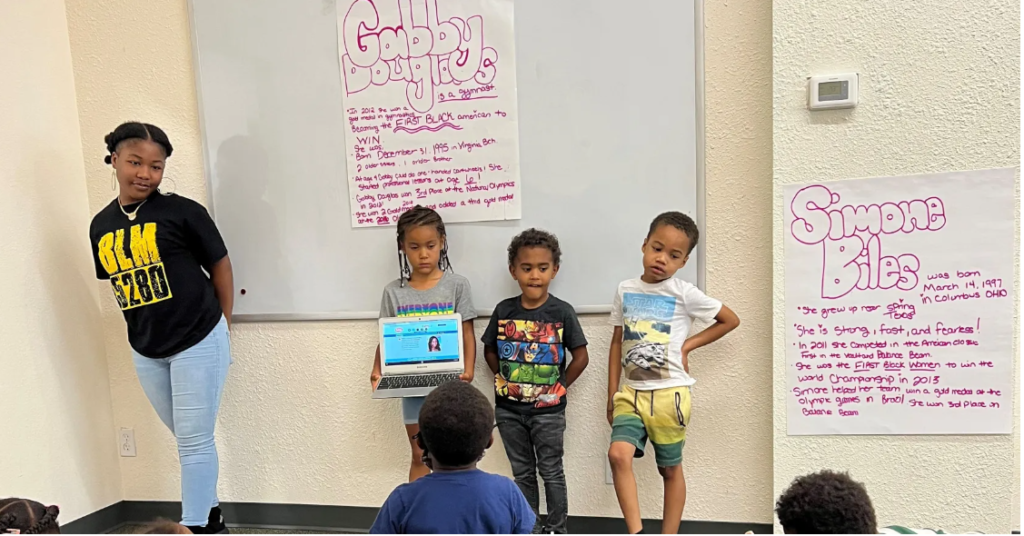
Hyoung Chang / The Denver Post
(This story was originally published by Chalkbeat on 3/24/2023. Sign up for their newsletters at ckbe.at/newsletters)
The Denver school board on Thursday (3/23/2023)suspended its policy banning armed officers on campuses, a day after the shooting of two administrators at East High School.
After a closed session, the board directed Superintendent Alex Marrero to work with Denver Mayor Michael Hancock and other officials to seek outside funding for up to two police officers and up to two mental health professionals at each high school for the rest of the school year.
Even as board members emphasized the change is temporary, it goes further than Marrero requested on Wednesday, when he said he would place one officer at every comprehensive high school even if it violated board policy.
The decision came on the same day students and teachers marched to the Capitol and lobbied lawmakers for stricter gun control laws. Another teacher rally is planned for Friday.
Marrero said placing police officers back into schools is the right decision.
“We educators came into this profession to support and help students thrive, and most importantly, provide them an opportunity to succeed,” Marrero said during a Thursday news conference. “I acknowledge that we have failed as a district.”
In a written statement, Hancock said he supported the board decision and stood ready to help place officers in school buildings.
The board’s unanimous decision puts its officer ban on hold until June. In its place, the board directed Marrero to come up with a long-term plan to protect students and staff in Denver schools by June 30.
Board President Xóchitl Gaytán said the board hasn’t flip-flopped in its position, but instead has hit pause for Marrero to come up with a long-term safety plan.
The board directed Marrero to include student, parent, school leader, teacher, and community input in his plan.
The board requests that every police officer placed in school be trained in how to de-escalate situations and in school policing. The board also wants those officers to have an understanding of the school community where they will be placed.
Marrero also will be required to give monthly updates on how police officers are used within schools, including the number of tickets issued and arrests made, and to ensure that police officers do not get involved in student discipline.
School staff will continue to handle weapons searches
It’s not clear how having officers in the building would have changed the outcome Wednesday or when East students were shot just outside the school in September and again in February.
The two administrators were shot as they searched a student for weapons as part of an individual safety plan that required daily pat-downs. On Wednesday, Denver Police Chief Ron Thomas said he wouldn’t want his officers to do such searches because school resource officers want to have positive interactions with students.
And on Thursday, Marrero said it will continue to be district policy to have staff do these searches.
That surprises Mo Canady, executive director of the National Association of School Resource Officers. Officers don’t need search warrants or probable cause to search students at school, just a reasonable suspicion, he said, and they have the training to remove weapons safely.
“I am continually stunned when a civilian is charged with having to search someone for a weapon,” he said. “That’s not fair to do. That’s a law enforcement role, that’s what we’re trained to do, and we know how to handle the gun if one is found.”
But Denver Classroom Teacher Association President Rob Gould, a former special education teacher who was involved in many student safety plans, said he considers this a job for educators, not law enforcement.
Denver not the only district bringing police back
Denver was one of at least 50 school districts nationwide to get rid of or significantly reduce police presence in the aftermath of the murder of George Floyd, according to an Education Week tracker. Eight others have since brought police back — sometimes, like Denver, in response to specific acts of violence.
Gould said he supports bringing officers back to schools for now, and many educators agree.
“Right now people need to feel safe,” he said. “Everybody is traumatized and retraumatized from the events of yesterday.”
That sentiment was echoed by many Denver students who left their classrooms to walk to the Capitol and call for stricter gun control laws.
“For the rest of the year, I don’t think I can imagine school a place where I can feel safe to learn again,” said Lila Port, 17, an East High School junior.
Others were more skeptical. East High School junior Linus Cole, 16, said unarmed, specially trained staff members would be more appropriate.
“We don’t need law enforcement sending students to jail for small crimes because that’s also not going to help,” he said.
Canady said that when schools bring police into schools, it’s critical to have a memorandum of understanding that lays out roles, responsibilities, and expectations, that the police department pick officers who want the assignment and have a good temperament for working with kids, and that they be well trained.
The research on the impacts of school resource officers is limited, said Franci Crepau-Hobson, a University of Colorado Denver professor who studies violence prevention, in part because there is such range in the roles and training of officers stationed in schools that it’s hard to draw comparisons or conclusions.
Research has found correlations between having officers in school buildings and more Black and brown students getting suspended, Crepau-Hobson said. In Denver, student referrals to law enforcement have declined since school resource officers were removed at the end of the 2020-21 school year — one goal of the previous policy change.
The idea that officers might deter violence just by their presence — something many parents and teachers have hoped — is hard to measure, Crepau-Hobson said.
“In some contexts, SROs can increase a sense of safety and security with kids, and in some cases it’s the opposite,” she said. “And when kids don’t feel safe, sometimes they do stupid things. It’s not a one-size-fits-all.”
Students rally for gun control
On Thursday morning, hundreds of students from the Denver area crowded into the State Capitol building to demand lawmakers take action after the shooting, including passing a package of gun control measures that are under consideration.
They joined teachers from the Colorado Education Association, the state teachers union, who have thrown their support behind the gun control measures and who also want more funding for mental health resources in schools.
East High School senior Abigail Niebauer said she wanted to look lawmakers in the eye and share how much fear students feel when a school goes into lockdown.
Niebauer was inside the building on Wednesday’s lockdown following the shooting. She was also nearby when Luis Garcia was shot outside the building in February. Garcia died almost two weeks later.
“We don’t want to sit back and feel powerless in this situation,” Niebauer said. “We want to continue to do as much as we can to make change. Even if we’re young kids, we think our voices speak loud.”
Bureau Chief Erica Meltzer covers education policy and politics and oversees Chalkbeat Colorado’s education coverage. Contact Erica at emeltzer@chalkbeat.org.
Jason Gonzales is a reporter covering higher education and the Colorado legislature. Chalkbeat Colorado partners with Open Campus on higher education coverage. Contact Jason at jgonzales@chalkbeat.org.




